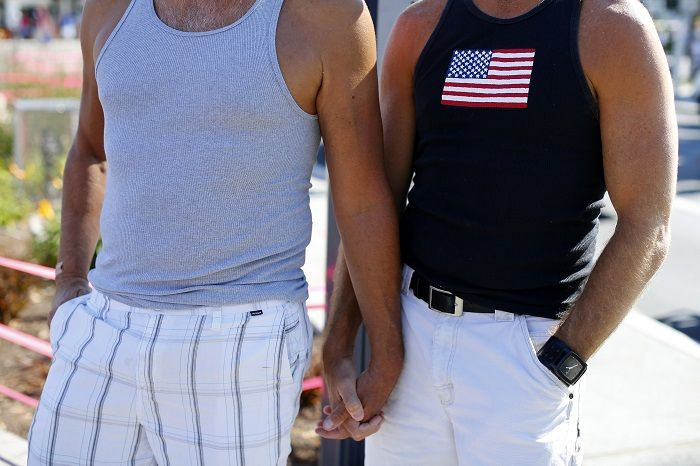HIV-Positive Men With Detectable Viral Loads More Likely To Have Unprotected Sex With Uninfected Men

Young gay and bisexual men living with HIV are more likely to engage in risky sexual behavior than men who take antiretroviral medication, according to a recent study published in JAMA Pediatrics. As a result, researchers from Columbia University suggest new strategies and approaches may be needed to address HIV and reduce risky behavior among young gay and bisexual men who are infected.
"While many of these young men are engaged in care, and success stories are many, we still have work to do to reduce the rate of new infections," lead author Patrick A. Wilson said in a statement. "We must remain engaged in finding new behavioral approaches for those young men who have yet to seek HIV testing, antiretroviral treatment, and adhere to viral suppression activities."
Young men who have sex with men are the group disproportionately affected by HIV. According to the Centers for Disease Control and Prevention (CDC), the number of new HIV infections among this group increased 12 percent from 26,700 in 2008 to 29,800 in 2010. New HIV infections among females who were infected through heterosexual contact dropped 18 percent from 9,800 to 8,000 during that same time period. And men who do not suppress the virus with treatment are more likely to infect others.
Although access to HIV medication has improved over the years, Wilson told Reuters that prevention and treatment interventions should “take a multipronged approach.” He added approaches to addressing HIV should include behavioral, biomedical, and structural strategies.
"I think that we can’t take a siloed approach in how we think and respond to HIV," he told Reuters. "I don’t think it ever was simply a public health issue. It’s an issue that has to do with housing, incarceration, health care access, behavior skills, and provider training."
For the study, Wilson and his colleagues surveyed nearly 1,000 HIV-positive gay and bisexual men at 20 U.S. clinics to look at the differences in demographic and psychosocial factors between virologically suppressed patients and those with detectable HIV. They found 55 percent of men with detectable HIV reported having anal intercourse without a condom, while 44 percent of those who had the virus suppressed by medication reported the same behavior.
Likewise, men taking medication reported having unprotected sex with a partner who was HIV-negative, while 25 percent of those who were not virally suppressed reported unprotected sexual intercourse.
Dr. David Rosenthal, director of the Center for Young Adult, Adolescent, and Pediatric HIV at North Shore-LIJ Health System, told HealthDay the virus continues to severely affect young gay and bisexual men, making them a “source of concern” when it comes to infection. Rosenthal was not involved with the current study.
"We have known that HIV has decreased in most age groups in the United States, but continues to increase in all patients aged 13-24, and even more so in gay and bisexual men in this age group,” he said.
Further investigation found that among young men having sexual relations with men, those who reported problematic substance use were more likely to report engaging in risky sexual behavior, including with someone who has not been infected. They also found that black men with detectable HIV who were employed were less likely to report unprotected anal sex than those who were unemployed.
Wilson concluded: "These findings speak to the need for targeting substance use and mental health concerns — factors related to viral suppression and sexual risk taking.”
Source:Wilson P et al. Sexual Risk Behavior Among Virologically Detectable Human Immunodeficiency Virus-Infected Young Men Who Have Sex With Men. JAMA Pediatrics . 2015.



























